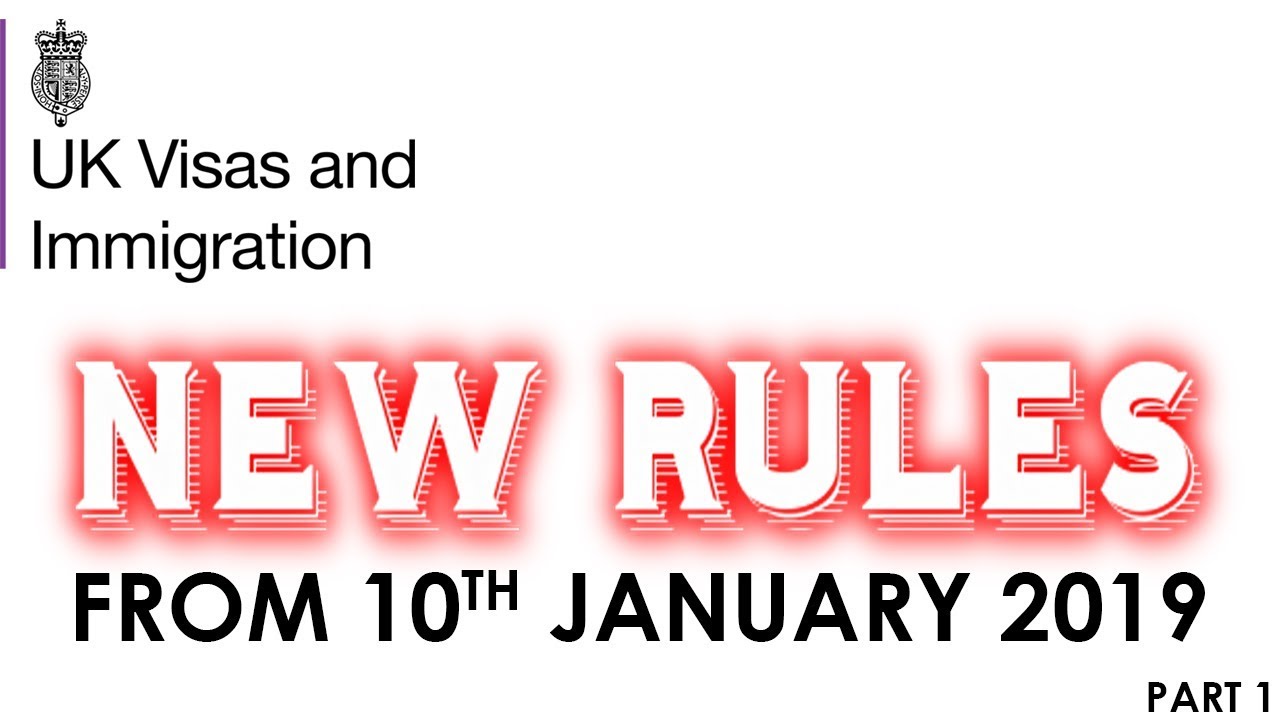
New Changes in Immigration Rules
A statement of changes to the Immigration Rules was made public on 11 December 2018. The main modifications include the introduction of the pilot scheme for short-term agricultural workers that was introduced earlier this year, and to enlarge the domestic violence settlement scheme to protect refugees. The additional important modifications to Tier 1 announced in December 2018 — holding and tensing up investor visas, substituting entrepreneur visas and beginning new start-up visas — are not bearing in place yet.
Bear in mind that, the online file name of the statement of changes includes the term “Minus_T1_Suspension”, so it is clear that the Tier 1 changes were meant to be in there initially. Home Office verifies messy U-turn on suspending Tier 1 (Investor) visas for an explanation of the absurd occasion in the past.
These modifications and alterations come into effect on 10 January 2019, and will apply to applications made on or after that date.
Development of domestic violence policies to spouses of refugees
Under current policies, the Home Office will permit anyone who has arrived into the United Kingdom under Appendix FM to live in the country for good, if the couple splits up due to of domestic abuse.
As an outcome of the latest statement of changes:
Entitlement for indefinite leave to remain, as a sufferer of domestic abuse, is being simplified to involve other half of individuals with refugee status who have not yet been allowed ILR status.
The term has also been revised. Appendix FM will now signify throughout to “domestic abuse” instead of “domestic violence”. This is to identify that domestic abuse can last without physical violence.
Seasonal worker pilot
The seasonal worker pilot will be stream under the existing Tier 5 (Temporary Worker) group. It will be exposed to applicants over the age of 18. The statement of changes presents a additional appendix into the Rules, Appendix U which says that:
“Edible horticulture sector” (that is mushrooms, vegetable, vines and fruits) and “seasonal work” are outlined in the overview to the Rules. Seasonal work is expressed as “employment which fluctuates or is restricted according to the season or time of the year”.
The advisory note states: “the formal date of implementation for this pilot will be announced in due course”.
Successful candidates will be granted leave starting 14 days before the starting period of appointment and windup 14 days after the termination of that time of appointment, but certainly not lengthier than six months in a calendar year. They will not be permitted to do on any other work than the work they are being appointed for. It also appears that they will not be permitted to come with their family members to the United Kingdom.
Tier 2 and Tier 5 – Sponsored workers
A number of modifications are made to the paths concerning Tier 2 and Tier 5 sponsored workers especially:
Tier 5 (Religious Worker) and Tier 5 (Charity Worker) immigrants will be required a 12-month cooling off period which means that, after they have departed from UK on the expiry of one of the afore mentioned visas, they will be required to hang on for further 12 months before re-entering the United Kingdom in the same visa category. As stated in the memo, this modification will “prevent migrants from applying for consecutive visas, thereby using the routes to live in the UK for extended periods, so as to reflect the temporary purpose of the routes better”.
Tier 5 Religious Workers, who may arrive into the UK for up to 24 months to do religious work, such as preaching or running in a religious order, will no longer be able to arrive into the United Kingdom to do “preaching and pastoral work”, or take the position of “minister of religion”. Those who desire to go to the UK as Ministers of Religion may, as an alternative, must be sponsored as Tier 2 (Ministers of Religion) migrants. Conferring to the descriptive notes, “this will ensure that the needs of religious establishments are still catered for within Tier 2, whilst drawing a clear distinction between the two routes and ensuring that no loophole exists within Tier 5”.
Adjustments have been made to allow Tier 2 and Tier 5 immigrant workforce to involve in legal strike act and take unpaid parental time out without their immigration position being disturbed. This was previously revealed in the guidance.
The description of “professional sportsperson” is more thorough, putting out more unambiguously the pointers that will be measured when evaluating whether an immigrant is playing sport in any role, other than that of an “amateur”. Experts making an application for sportspersons must ensure that they are aware with the new classification.
Tier 2 (Intra-Company Transfer) applicants will be required to apply for an Academic Technology Approval Scheme (ATAS) certificate if they desire to study a postgraduate qualification in particular delicate field.
The policies now incorporate citations to the suitable salary to be given to nurses or midwives who are taking on the Observed Structured Clinical Examination (OSCE) to attain Nursing and Midwifery Council registration while waiting for registration with the Nursing and Midwifery Council Registration is either effectively fulfilled, else closed, or after eight months of the specified employment date, whichever is earlier. The applicable salaries are between £16,597 and £17,760 (Please note that there are discrete salaries in England, Scotland, Wales and Northern Ireland).
Tier 1 (Exceptional Talent Visa)
The validation of arts candidates, which was extended in July 2018 to embrace those in the fashion industry, has been more extended to incorporate those in the domain of architecture. These applicants will be evaluated by the Royal Institute for British Architects functioning within the authorization remit of Arts Council England.
Furthermore, the allowance of entry clearance will contain an added four months so that, an applicant desiring One year entry clearance will be permitted 1 year and 4 months entry clearance.
Tier 4 – Students
The new changes in rule confirm that they expose changes “arising from the higher education reform in England, including the introduction of the Office for Students, and so that institutions in the Devolved Administration have the same ability to offer privileges to their students as institutions in England”. These rules are still unclear but the good news is that these modifications will not come into effect until 1 August 2019 so optimistically if there are any important changes you need to be mindful of, they will become understandable when the time comes.
Coming into effect on 10 January 2019 are some minor modifications to Appendix C, relating to proof of funds for students. These are to make sure that Tier 4 applicants, who depend on student loans or funds from official financial sponsors, are not needed to show that the funds have been kept for a period of 28 consecutive days.
Supplementary changes
The rules concerning ancestry visas have been edited. An applicant is not required to present evidence linking to the motive for their absences from the UK during the five-year continuous period heading to ILR.
The policies establish a paragraph linking to the Tier 5 (Youth Mobility Scheme) making sure that in the incident of a upcoming delay in establishing the annual quotas, a fraction will inevitably become accessible to associating countries, making sure that the route continues to serve.


Leave a Reply